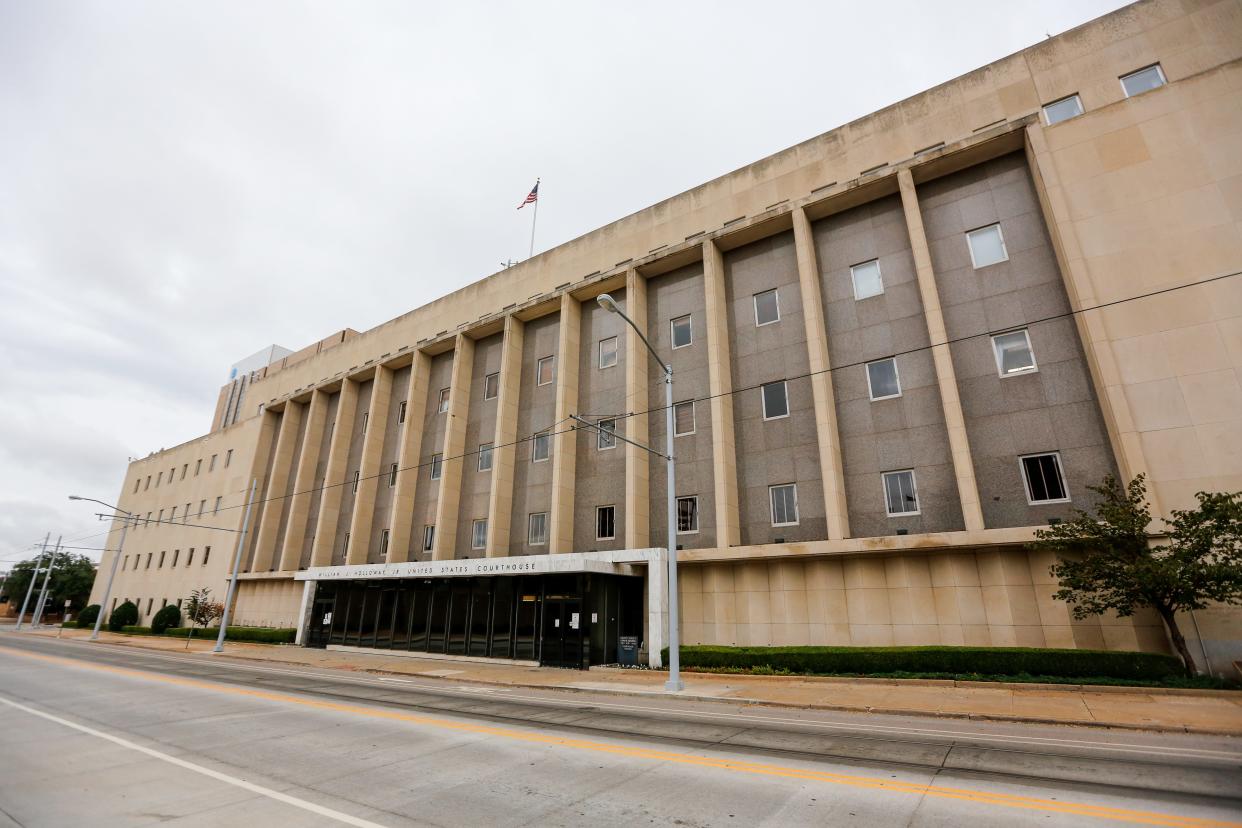'Baseball caps' and 'beans': How deciphering code words unearthed an Oklahoma drug trafficking ring

In breaking up a drug trafficking ring, a local FBI agent had to figure out why the group always talked about baseball caps, truck parts and beans.
The two-year investigation culminated earlier this month when an Oklahoma City federal judge sentenced Antonio Ortiz Herrera, 46, of Edmond, to 22 years in federal prison for his role in a drug trafficking organization responsible for distributing hundreds of kilograms of methamphetamine and cocaine throughout the United States.
Herrera was the last of nine people to be sentenced in the case, with the group collectively ordered to serve more than 91 years in federal prison. He pleaded guilty to conspiracy to possess with the intent to distribute 500 grams or more of methamphetamine.
Prosecutors said Herrera and his group had ties to Mexico, the starting point of shipments of methamphetamine and cocaine into both Texas and Oklahoma.
Millions of dollars were made through the illegal drug operation, most of which went back to Mexico through bulk cash smuggling.
Oklahoma FBI agent deciphered an evolving code among drug dealers
A key part of cracking the case was decoding the evolving language of drug dealers.
Using two confidential informants, surveillance, recorded phone calls and court-ordered wiretaps, the Oklahoma City-based FBI agent quickly developed a new dialect, according to court documents.
Baseball caps? That was the code for camper shells on pickups.
Investigators said the traffickers sealed drugs and cash inside the interior roofs of the camper shells as they navigated back and forth from Mexico and across the United States.
More: Seven charged in fatal shooting, robbery at Oklahoma medical marijuana grow
One traffic stop led to the discovery of 49 square, kilogram-size, outlines on the interior roof of the camper shell. It turned out to be cocaine.
A search warrant executed on one pickup led to the discovery of roughly $600,000 in cash “arranged neatly within the roof of the camper shell,” the FBI agent wrote in an affidavit.
Then there were truck parts.
Herrera, not knowing he was talking to a confidential informant who received $500 from the FBI for cooperating, explained that code words like “two truck parts” should be used for 2 ounces of drugs while making a purchase.
Ortiz was second in command to Victoriano Neri Hernandez, who was sentenced to 24 years in federal prison for drug conspiracy and possession of cocaine with intent to distribute.
During one phone call intercepted by the FBI, Neri asked Herrera, “How the beans turned out.”
In a text message to Herrera, one associate wrote that he was “just about to turn on the pot for the beans.”
Beans was a code word for methamphetamine.
Herrera explained to the confidential informant that the organization received methamphetamine in both liquid and powder form, both of which required drug traffickers to convert the methamphetamine into the crystal form in which it is commonly sold, according to the affidavit.
The conversion process is often called "cooking" and involves a heat source applied to a cooking pot.
A search warrant executed at Herrera’s residence led to the discovery of 10 individually wrapped packages of what appeared to be cocaine, a 5-gallon bucket filled halfway with what appeared to be methamphetamine, additional methamphetamine that was spread out on a plastic tarp, and drug paraphernalia that included scales and plastic bags.
The FBI Oklahoma City field office was joined in the investigation by the Oklahoma City Police Department, with support from IRS Criminal Investigation.
This article originally appeared on Oklahoman: Oklahoma drug ring unearthed by deciphering specific code words

